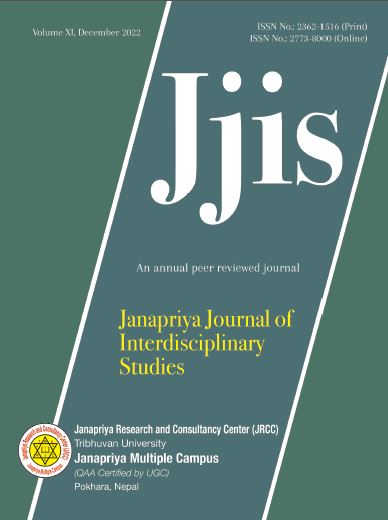Impact of Bank-Specific Variables on Financial Performance of Joint Venture Banks in Nepal
DOI:
https://doi.org/10.3126/jjis.v11i1.51645Keywords:
Capital adequacy, credit risk, efficiency, financial performance, liquidity, managementAbstract
Banks play an important role not only in the growth of the financial system but also in the development of the overall economy of a nation. Therefore, the determinants of bank performance have attracted the interest of academic research, bank management, and financial markets as well as of bank regulatory bodies. This paper examines the impact of bank-specific variables on the financial performance of joint venture banks in Nepal. The data are collected from the supervision report of Nepal Rastra Bank and annual reports of the sample banks for 10 years from the fiscal year 2009/10 to 2018/19. Based on the results of the Breusch-Pagan LM test and Hausman Test, fixed effects regression models are applied to examine the effects of bank-specific variables on the financial performance of Nepalese joint venture banks. The result shows that there is a significant positive impact of size and employee expenses on the performance of banks measured in terms of return on assets, return on equity and net interest margin. Management efficiency has also a positive impact on the performance of banks but it is significant only on net interest margin. Similarly, there is a significant negative impact of liquidity on return on equity and net interest margin and a significant negative impact of operating expenses on the net interest margin of the banks.




